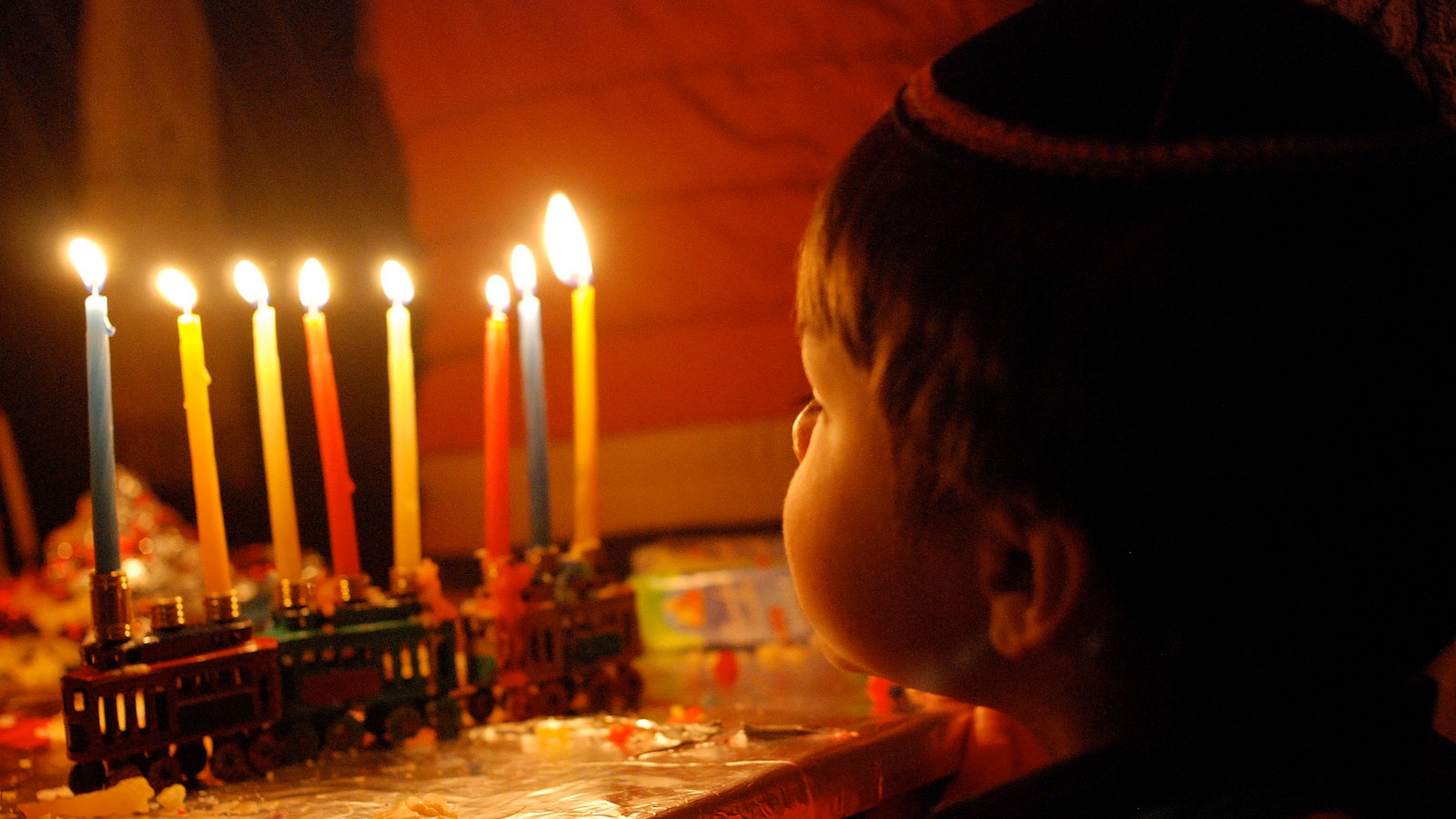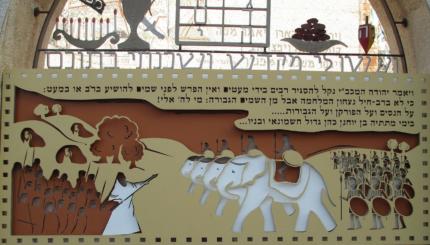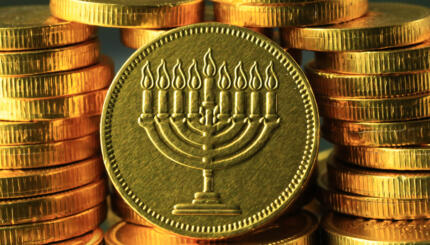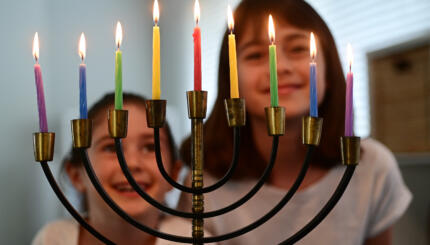Al Hanisim — Pronounced ahl hah-nee-SEEM. Literally “on the miracles,” the prayer added to the Amidah prayer and Birkat Hamazon (blessing said after meals) during .
Dreidel (also commonly spelled dreydel) — Pronounced DRAY-dull. A spinning top with four sides, each marked with a different Hebrew letter and each indicating a different play in this game.
Hanukkah Gelt — Gelt is the Yiddish word for money. Today, Hanukkah gelt is more often used to identify the foil-covered chocolate coins, which are a popular part of many Hanukkah celebrations.
Hanukkah (also commonly spelled Chanukah) — Pronounced HAH-nuh-kuh. Literally “rededication,” an eight-day holiday commemorating the Maccabees recapturing the Temple from the Greeks.
With your help, My Jewish Learning can provide endless opportunities for learning, connection and discovery.
Hanukkiyah — Pronounced hah-noo-kee-YAH or hah-noo-KEE-yuh (oo as in boot). Literally “Hanukkah lamp,” it is more commonly referred to as a (see below). It contains nine candle-holders, one for each night of Hanukkah and one to hold the Shamash (see below).
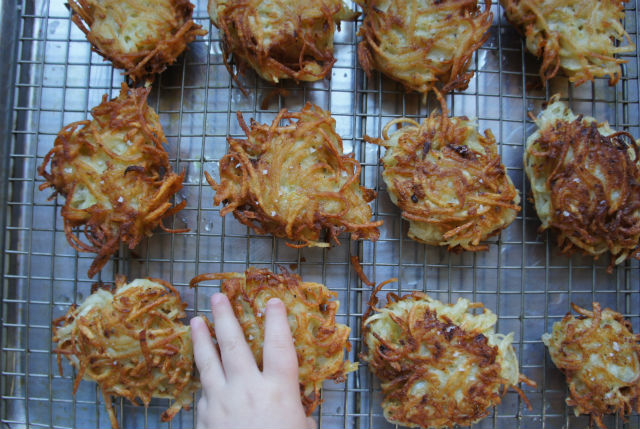
Latkes — Pronounced LAHT-kuhs, sometimes LAHT-kees. Pancakes, usually potato ones, fried in oil and eaten on Hanukkah.
Maccabees — Pronounced MACK-uh-bees. The family of religious zealots who triumphed over the Syrian Greeks and liberated the Temple.
Menorah— Pronounced muh-NOHR-uh. Literally “lamp,” it originally was used only to describe the seven-branched candelabrum that was used in the ancient Temple in Jerusalem. However, the used on Hanukkah is commonly referred to as a menorah.
Nes Gadol Hayah Sham —Pronounced ness gah-DOHL high-YAH shahm. Literally “a great miracle happened there,” the letters on the dreidel (nun, gimmel, hey, shin) represent these words. In Israel, the shin is replaced with a peh, so the letters spell out Nes Gadol Hayah Po, or “a great miracle happened here.”
Sevivon — Pronounced suh-vee-VOHN. The Hebrew word for dreidel.
Shamash (also often spelled shammash) — Pronounced shah-MAHSH. Literally “the helper,” the candle on the Hanukkiyah that is used to light the other candles.
Sufganiyot — Pronounced soof-gahn-ee-YOHT. Doughnuts, usually jelly-filled ones, fried in oil and eaten on Hanukkah
Explore Hanukkah’s history, global traditions, food and more with My Jewish Learning’s “All About Hanukkah” email series. Sign up to take a journey through Hanukkah and go deeper into the Festival of Lights.
